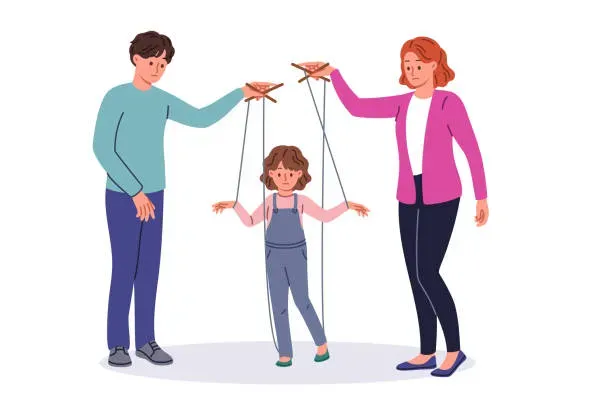The Real Dangers of Denial: Puppeteering Children's Lives (But Not in the Way You Think)

So, folks, I came across another article from the ‘concerned parents’ sphere - this time about the supposed ‘dangers of affirmation.’ Let me tell you something: when someone uses children's safety as a shield for their own discomfort, that's when my ears perk up. Because what's really happening here isn't protection - it's projection.
The author begins by describing a documentary scene where a young transgender girl named Josie discusses puberty with her mother. They frame this normal, age-appropriate conversation as something sinister - as if preparing a child for their medical future is somehow manipulative. But what's truly manipulative is selectively interpreting children's experiences to push an agenda.
Let's break down some inconvenient truths:
Claim: ‘Josie wasn't aware medical intervention would be needed’
The author suggests the child was somehow tricked, writing dramatically that Josie ‘wasn't told that his body's natural male puberty was what will happen.’ But the entire conversation they describe is literally the parent explaining exactly this reality. The mother is clearly having an age-appropriate medical conversation, explaining that estrogen would be needed for breast development. That's not concealment - that's transparent education.
The author's concern that an 8-year-old isn't fully processing the complexities of gender-affirming healthcare is... stating the obvious? Children understand concepts incrementally as they develop, just as they do with every other aspect of human health and development. No parent explains the full details of reproductive biology or medical care to young children in a single sitting.
Claim: ‘The child believes healthy body parts are a 'birth defect'‘
Here's where the manipulative framing reaches its peak. The author characterizes the mother's explanation as ‘abusive,’ but gender dysphoria is a recognized medical condition where the disconnect between gender identity and physical characteristics causes significant distress. Using age-appropriate language to help a child understand this disconnect isn't abuse - it's compassionate parenting.
The metaphor of a ‘birth defect’ may not be perfect, but it's an accessible way to help a young child understand why they're experiencing discomfort with their body. Parents of transgender children aren't creating these feelings - they're responding to persistent, consistent, and insistent gender identity expressions from their children.
Claim: ‘Four years isn't enough to determine if this is a phase’
The author compares their own experience of ‘desisting’ to invalidate this child's experience. But research consistently shows that children with persistent gender dysphoria who are supported through social transition rarely change their minds.1 The ‘it's just a phase’ argument is convenient for those uncomfortable with transgender children but isn't supported by longitudinal evidence.
Let's be clear: no one is rushing children into medical treatments. Standards of care for transgender youth involve careful assessment, ongoing therapy, fully reversible social transitions first, and a step-by-step approach to any medical interventions only when age-appropriate.2
The puppeteering metaphor
The image accompanying this article (parents manipulating a child as a puppet) is particularly telling. But who's really pulling the strings here? Is it:
A) Parents listening to their children's persistent identity expressions and consulting with medical professionals to provide evidence-based support?
or
B) Adults who've never met these children writing articles that cast loving parents as abusers and deny children's lived experiences because it makes them uncomfortable?
The real puppeteers are those who use children as political pawns in their crusade against transgender acceptance.
The author's personal experience is valid but not universal
The author says they ‘hated being a girl’ as a child due to rigid gender roles. That's a valid experience. But there's a fundamental difference between disliking gender stereotypes and experiencing persistent gender dysphoria. Gender nonconformity is not the same as being transgender. Many tomboys grow up to be cisgender women. Many transgender girls aren't particularly interested in stereotypically ‘girly’ things.
What's concerning is how the author takes their personal experience and uses it to invalidate the experiences of others. They speculate without evidence that transgender children are simply confused about gender roles rather than experiencing a fundamental disconnect with their assigned sex. This ignores the substantial research showing that transgender identities exist across cultures, time periods, and even in societies with different gender norms.3
The actual dangers of non-affirmation
What the author completely misses is the well-documented harm of non-affirmative approaches. Transgender youth who aren't supported have dramatically higher rates of depression, anxiety, and suicidality.45 Conversely, those with supportive families show mental health outcomes comparable to their cisgender peers.6
The real ‘danger of affirmation’ isn't that children might change their minds later (though some do, and that's perfectly fine). The real danger is pretending there's some neutral position of ‘wait and see’ when denial is actively harmful. Forcing a transgender child through an unwanted puberty isn't neutral - it's an intervention that can cause lifelong psychological distress.7
Let's get real about what's happening
The growing cottage industry of anti-trans content isn't about protecting children. It's about maintaining a comfortable worldview where gender is simple and binary. It's about adults who find transgender identities confusing or uncomfortable projecting that discomfort onto the children who need support.
The author closes by saying they should have been ‘reinforcing that there is nothing wrong with my body.’ But that's exactly what gender-affirming care does - it acknowledges that there's nothing wrong with the child or their body and that sometimes, some folks need some help so their body can be aligned with their identity in order to thrive - and that is ok too.
So let's be honest about who's really pulling the strings in this puppet show. It isn't the parents following medical guidelines to support their children. It's those who would sacrifice children's well-being at the altar of their own ideological views and comfort with the status quo (and for profit).
And when it comes to parents like Josie Alexander, Dina Samuels, Lisa Shultz, Beth Bourne, Claudia/’Lily Maynard’, Eliza Mondegreen, Maria Keffler, and their grifting ilk8, that's the most inconvenient truth of all.
References
1 Olson, K. R., Durwood, L., DeMeules, M., & McLaughlin, K. A. (2016). Mental health of transgender children who are supported in their identities. Pediatrics, 137(3), e20153223. https://doi.org/10.1542/peds.2015-3223
2 Coleman, E., Radix, A. E., Bouman, W. P., et al. (2022). Standards of Care for the Health of Transgender and Gender Diverse People, Version 8. International Journal of Transgender Health, 23(Supplement 1), S1-S259. https://doi.org/10.1080/26895269.2022.2100644
3 Herdt, G. (Ed.). (1996). Third sex, third gender: Beyond sexual dimorphism in culture and history. Zone Books.
4 Trevor Project. (2022). 2022 National Survey on LGBTQ Youth Mental Health. The Trevor Project.
5 Turban, J. L., King, D., Carswell, J. M., & Keuroghlian, A. S. (2020). Pubertal suppression for transgender youth and risk of suicidal ideation. Pediatrics, 145(2), e20191725.
6 Olson, K. R., Durwood, L., Horton, R., Gallagher, N. M., & Devor, A. (2022). Gender identity 5 years after social transition. Pediatrics, 150(2), e2021056082.
7 de Vries, A. L., McGuire, J. K., Steensma, T. D., Wagenaar, E. C., Doreleijers, T. A., & Cohen-Kettenis, P. T. (2014). Young adult psychological outcome after puberty suppression and gender reassignment. Pediatrics, 134(4), 696-704.
8 Yes, they all have monetization efforts in the works i.e. subscriptions, books, etc. This is not a complete list, just what came to mind at the time of writing this


